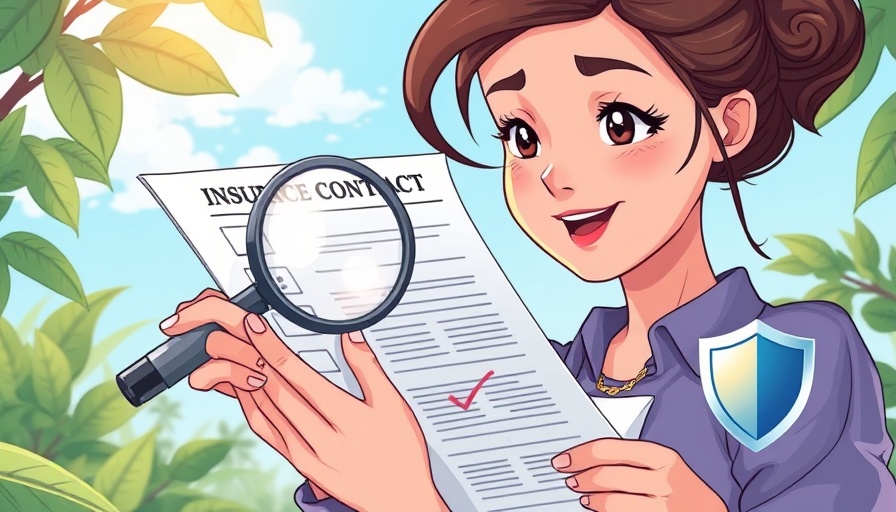
Why Small Businesses Risk Financial Ruin
Insurance is often viewed as an expense, one that many small business owners wish they could eliminate. However, the value of robust insurance coverage cannot be overstated. Without the right policies, a small business can face significant financial challenges when the unexpected occurs. Understanding common pitfalls in insurance coverage is crucial—here are key traps every business owner should avoid.
1. The Underinsurance Dilemma
One major risk for small businesses is being underinsured. Failing to secure adequate coverage can lead to catastrophic financial consequences if a loss occurs. For example, during a fire or natural disaster, having inadequate property coverage can mean facing a significant portion of the repair or replacement costs out-of-pocket.
It’s vital to review and adjust your coverage regularly—ideally during annual renewals. As your business grows, so do your risks, and your insurance should reflect your operational needs. Consider conducting a thorough evaluation of what it would cost to replace your assets in a worst-case scenario.
2. Homeowner’s Policies vs. Home Office Coverage
Many small businesses start from home, but relying on a standard homeowner’s policy can spell disaster. These policies typically do not cover business-related losses, and if an incident occurs—like a client injury or inventory theft—you could be financially exposed. It’s essential to invest in an insurance policy that specifically covers home office scenarios to safeguard your business assets.
3. Misclassified Auto Policies and Their Consequences
A common error among small business owners is using a personal auto insurance policy for business-related driving. However, if an accident occurs while driving for business purposes, the insurer may deny claims, leaving the policyholder vulnerable. For vehicles used exclusively for business purposes, such as delivery vans or service vehicles, a commercial auto policy is not just advisable—it's necessary.
If personal vehicles are used occasionally for business tasks, understanding the policy's coverage limitations is crucial. It might be time to discuss with your insurer whether a commercial policy makes sense for your operations.
4. Overlooking Essential Coverage Types
Insurance policies are not “one size fits all,” and neglecting to consider specific types of coverage can be a significant oversight. For example:
- Flood Insurance: Standard Business Owner’s Policies (BOP) typically do not include flood coverage. If your business is in an area prone to flooding, be sure to secure additional coverage through a specialized policy.
- Cyber Liability Insurance: With growing cyber threats, small businesses need protection from potential breaches, as they are particularly vulnerable. Companies experience average costs ranging from hundreds to thousands due to cyber incidents, making this coverage essential.
- Employment Practices Liability Insurance (EPLI): This protects against wrongful termination and sexual harassment claims. It’s a must-have if you have employees, as BOPs usually don’t cover employee-related liabilities.
- Business Interruption Coverage: This provides protection if your business shuts down due to a disaster, covering lost income and essential expenses during recovery.
- Errors & Omissions Insurance: Critical for service professionals, this policy protects against claims of negligence or inadequate work. Like EPLI, it typically isn’t included in standard coverages.
5. The Risks of Misclassifying Workers
Another essential area for small business owners is workforce classification. Misclassifying employees as independent contractors can lead to severe repercussions, including penalties and the need to pay back taxes, health benefits, and workers’ compensation claims. This situation underlines the importance of consulting with legal and HR professionals to ensure proper classifications and mitigate risks.
Why Insuring Properly Is Imperative for Your Business
Insurance can feel burdensome, especially as a new business owner; however, the implications of insufficient coverage can be severely damaging. Understanding these traps helps mitigate risk and will ultimately contribute to your long-term success. Your business's financial stability relies on securing the right protection to cover potential losses effectively.
In conclusion, don’t underestimate the value of comprehensive insurance coverage. By taking preventive steps and understanding the nuances of various insurance types, you can protect yourself from pitfalls that could undermine your business's stability. Invest time in learning about your insurance needs—your future self will thank you.
 Add Row
Add Row  Add
Add 




Write A Comment